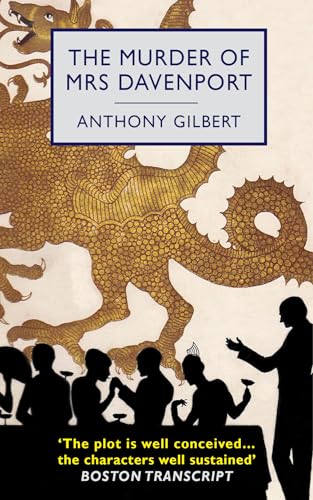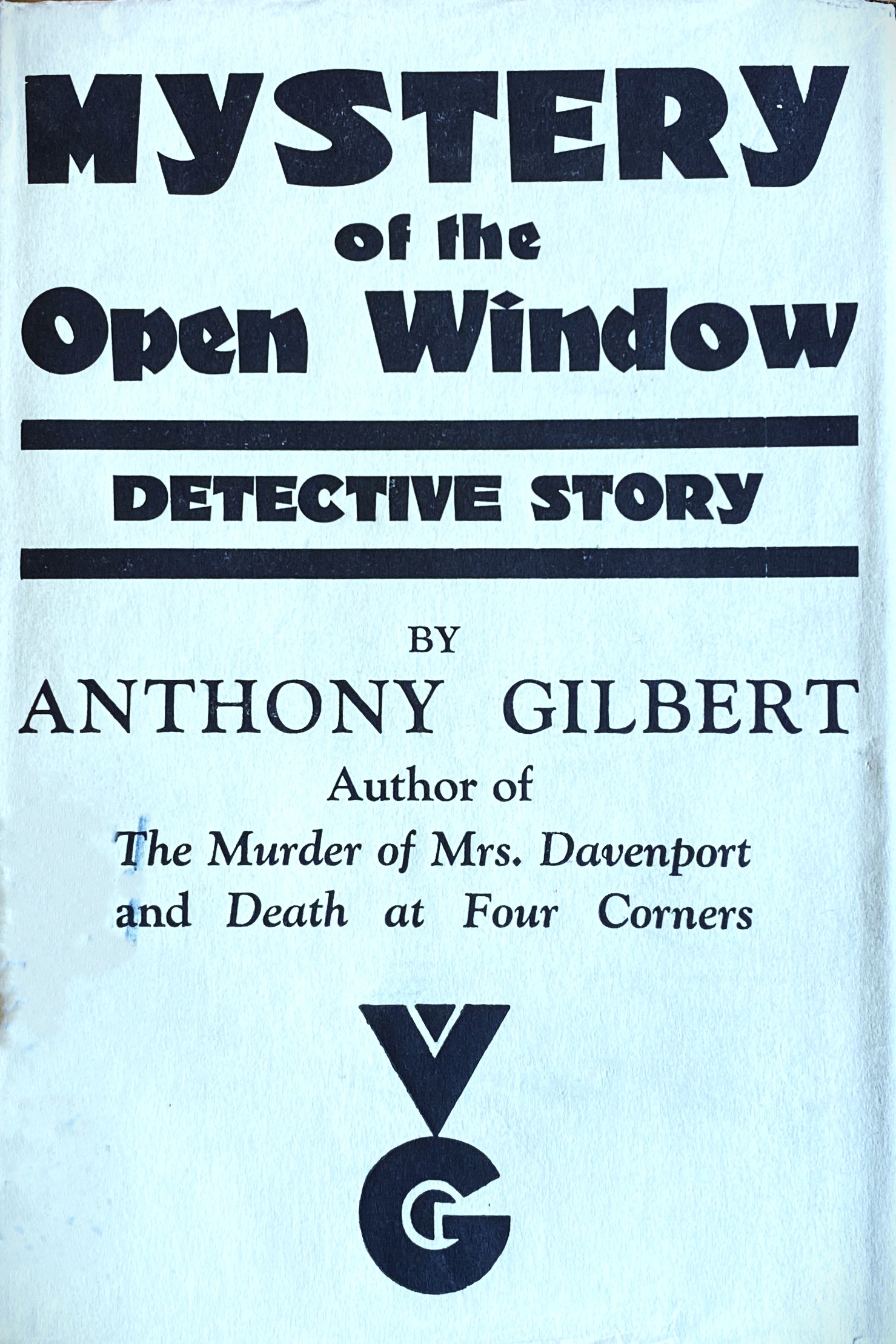
Part of Series
‘An absorbing story’ Times Literary Supplement‘The plot is well-conceived… the characters are well sustained’ Boston Transcript‘Perfect in constructive technique’ Yorkshire PostLucy Malleson’s second detective novel under her most popular pseudonym, Anthony Gilbert, back in print for the first time in almost a centuryAmateur sleuth Scott Egerton’s second case At a dinner-party on the eve of his marriage to a wealthy socialite, Sir Denis Brinsley is confronted by an old flame, the beautiful Mrs Helen Davenport. Helen is being blackmailed and appeals to her ex-lover for help. In exchange she will return certain indiscreet letters Sir Denis wrote to her, the content of which would surely put an end to his advantageous marriage plans. Sir Denis refuses. Just days later Helen is found dead in her London flat, striking an inhuman pose astride her sofa. She has been strangled. Aristocratic young politician and amateur sleuth, Scott Egerton, investigates, pitching his wits against Inspector Jamieson of Scotland Yard. ABOUT THE AUTHOR Anthony Gilbert was one of four pseudonyms adopted by Lucy Beatrice Malleson, the English novelist who wrote over seventy detective and crime novels between 1925 and 1972. From the age of seventeen, she wrote verse and short pieces for Punch and various literary weeklies. She also wrote as Anne Meredith, J. Kilmeny Keith and Lucy Egerton, but settled on the Anthony Gilbert pen name for her most popular literary creations, earthy, pugnacious, Cockney lawyer-detective Arthur G. Crook and aristocratic amateur sleuth, Scott Egerton. She was an early member of the prestigious Detection Club, and friends with Agatha Christie, who used her Anne Meredith pseudonym as the name for a character in Cards on the Table. Malleson valued her privacy and for many years successfully concealed her identity as the writer of the Gilbert novels, even publishing her memoir, Three-a-Penny, under a pseudonym. Recently reissued under her real name, Three-a-Penny, was selected as a BBC Radio 4 ‘Book of the Week’. She lived most of her life in London, never married, and died in 1973. Praise for Anthony Gilbert ‘Unquestionably a most intelligent author. Gifts of ingenuity, style and character drawing’ The Sunday Times ‘Arthur Crook is a lawyer-sleuth worth meeting’ New York Times ‘His stories, like his detective, Mr Crook, have vitality with decent and credible characters and, detection-wise, fair play’ Times Literary Supplement ‘Careful in craftsmanship, scrupulously fair, more than well-written, Anthony Gilbert’s novels show the unsensational type of detective story at its best’ The Daily Telegraph ‘Anthony Gilbert is a master not only of the craft of the crime story, but also of the creation of character and atmosphere’ Irish Independent ‘Mr Gilbert writes extremely well’ E.C. Bentley ‘Anthony Gilbert has real descriptive power’ E.R. Punshon
Author

Anthony Gilbert was the pen name of Lucy Malleson an English crime writer. She also wrote non-genre fiction as Anne Meredith , under which name she also published one crime novel. She also wrote an autobiography under the Meredith name, Three-a-Penny (1940). Her parents wanted her to be a schoolteacher but she was determined to become a writer. Her first mystery novel followed a visit to the theatre when she saw The Cat and the Canary then, Tragedy at Freyne, featuring Scott Egerton who later appeared in 10 novels, was published in 1927. She adopted the pseudonym Anthony Gilbert to publish detective novels which achieved great success and made her a name in British detective literature, although many of her readers had always believed that they were reading a male author. She went on to publish 69 crime novels, 51 of which featured her best known character, Arthur Crook. She also wrote more than 25 radio plays, which were broadcast in Great Britain and overseas. Crook is a vulgar London lawyer totally (and deliberately) unlike the aristocratic detectives who dominated the mystery field when Gilbert introduced him, such as Lord Peter Wimsey. Instead of dispassionately analyzing a case, he usually enters it after seemingly damning evidence has built up against his client, then conducts a no-holds-barred investigation of doubtful ethicality to clear him or her. The first Crook novel, Murder by Experts, was published in 1936 and was immediately popular. The last Crook novel, A Nice Little Killing, was published in 1974. Her thriller The Woman in Red (1941) was broadcast in the United States by CBS and made into a film in 1945 under the title My Name is Julia Ross. She never married, and evidence of her feminism is elegantly expressed in much of her work.


